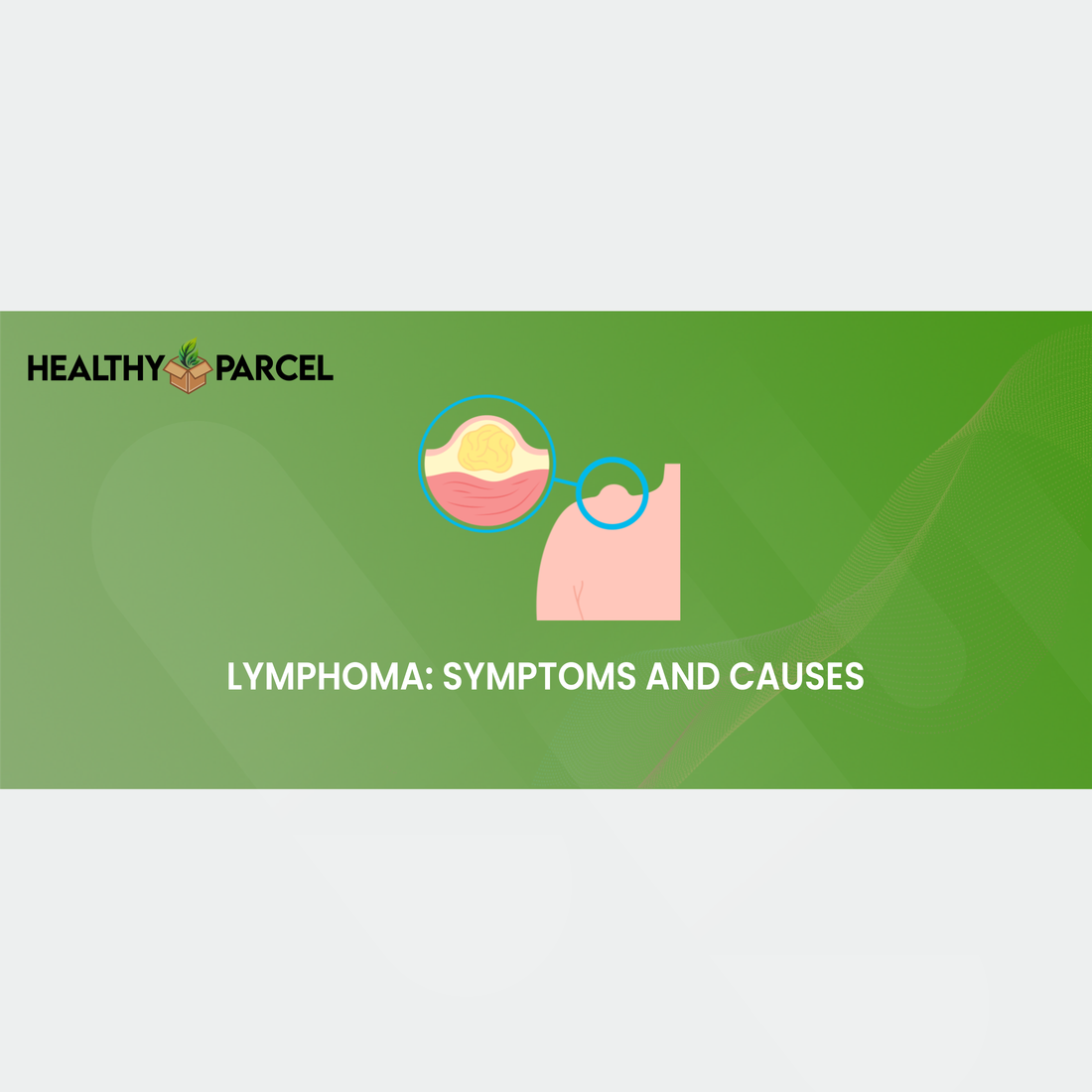What is lymphoma?

Lymphoma refers to cancer within the lymphatic system, which includes tissues, vessels, and organs that help the body fight off infections. This type of cancer falls under the category of blood cancers because it originates in the white blood cells (lymphocytes) within the lymphatic system.
Lymphomas are mainly divided into two types: Hodgkin lymphoma and non-Hodgkin lymphoma, with over 70 subtypes. They can either be aggressive (rapidly growing) or indolent (slow-growing). Treatment often leads to remission or even a cure. Lymphoma can occur in people of all ages, including children, teenagers, and adults. This article specifically addresses lymphomas in adults.
Who is affected by lymphoma?
Non-Hodgkin lymphoma usually affects individuals aged 60 to 80. It is more prevalent in men and people assigned male at birth (AMAB) than in women and people assigned female at birth (AFAB).
Hodgkin lymphoma tends to affect people between the ages of 20 to 39 and those aged 65 and older. Men and people AMAB are slightly more likely to develop Hodgkin lymphoma compared to women and people AFAB.
Symptoms and Causes
Symptoms of Lymphoma

Many lymphoma symptoms are similar to those of less serious illnesses. Having these symptoms doesn't necessarily mean you have lymphoma, but it's a good idea to consult a healthcare provider if you experience any persistent changes in your body.
Common symptoms of both Hodgkin and non-Hodgkin lymphoma include:
- Painless swelling of one or more lymph nodes in the neck, armpits, or groin that doesn't subside within a few weeks
- Persistent fatigue, where you feel extremely tired day after day despite adequate rest
- Fever that stays above 103 degrees Fahrenheit (39.5 degrees Celsius) for more than two days, or recurrent fever
- Drenching night sweats that soak your pajamas and sheets
- Shortness of breath, feeling as though you can't get enough air
- Unexplained weight loss of 10% of your body weight over six months without dieting or exercise
What causes lymphoma?
Lymphoma occurs when white blood cells in the lymphatic system mutate into rapidly growing cancer cells that do not die. Most of the genetic mutations that cause lymphoma occur spontaneously without a clear cause. However, certain factors may increase your risk of developing lymphoma:
- Previous infections with viruses such as HIV, Epstein-Barr (mononucleosis), and Kaposi sarcoma-associated herpesvirus
- Family history of lymphoma
- A weakened immune system due to other conditions or treatments, such as immunosuppressant medication taken after an organ transplant
- Autoimmune diseases, where the immune system mistakenly attacks the body
Diagnosis and Tests
How is lymphoma diagnosed?

Healthcare providers diagnose lymphoma through a combination of physical examinations, biopsies, and various tests. They start with a physical exam to check for lymphoma symptoms and then perform a biopsy to obtain tissue samples for analysis by a pathologist. If the lab results suggest lymphoma, additional blood and imaging tests are conducted to understand the condition better and plan appropriate treatment.
Blood tests:
- Complete Blood Count (CBC) with differential: Analyzes different types of white blood cells.
- Erythrocyte Sedimentation Rate (ESR): Detects inflammation that may indicate lymphoma.
- Lactate Dehydrogenase (LDH): Measures cell turnover, which can signal rapid cell growth or death.
- Liver and Kidney Function Tests: Assess the functioning of these organs.
- Serum Protein Electrophoresis (SPEP): Evaluates monoclonal proteins (M proteins), which are abnormal proteins produced by plasma cells.
Imaging tests:
- Computed Tomography (CT) Scan: Identifies signs of lymphoma such as enlarged lymph nodes, spleen, or other organs.
- Positron Emission Tomography (PET) Scan: Detects cancerous activity, often combined with low-resolution CT scans and sometimes used alongside MRI scans.
For non-Hodgkin lymphoma, additional lab tests might be ordered to identify specific genes, proteins, and other substances unique to certain types of the disease.
How can I take care of myself if I have lymphoma?

If you have lymphoma, developing a plan for managing your condition can be beneficial. This plan can guide you through initial treatment and any follow-up care. Here are some important aspects to consider:
- Understand Treatment Impact: Learn how your lymphoma treatment might affect your daily activities. This knowledge can help you determine if you need assistance at home or during treatment.
- Maintain a Healthy Diet: Eat a balanced diet with lean proteins, whole grains, and full-fat dairy products. If treatment affects your appetite, consult a nutritionist for advice on maintaining your strength through proper nutrition.
- Self-Care: Make time for activities you enjoy, such as journaling, listening to music, or spending time outdoors.
- Manage Stress: Since cancer can be stressful, consider activities like meditation, relaxation exercises, or deep breathing to help alleviate stress.
- Stay Active: Exercise can improve your quality of life by reducing fatigue and stress. Engage in physical activities that you enjoy and can manage.
- Seek Support: Cancer can feel isolating, and you might not always want to discuss it with family or friends. Ask your healthcare provider about support services and programs that could be beneficial.
By incorporating these elements into your plan, you can better manage living with lymphoma and maintain your quality of life during treatment.
Key Takeaways
Lymphoma, a cancer of the lymphatic system, includes Hodgkin and non-Hodgkin types, affecting various age groups differently. Diagnosis involves physical exams, biopsies, blood tests, and imaging tests.
Managing lymphoma requires a comprehensive care plan. Key elements include understanding treatment impacts, maintaining a healthy diet, practicing self-care, managing stress, staying active, and seeking support.
A tailored approach addressing medical and emotional needs can significantly enhance the quality of life for those with lymphoma. Consult healthcare providers to create an effective, personalized plan.

